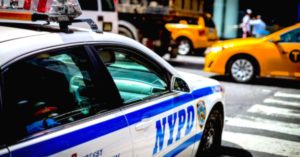15 Oct ABKLaw BLOG: (Un)lawful traffic stops and the exclusionary rule
BLOG from our #ABKLaw Partner Michael Jaccarino, Esq.: (Un)lawful traffic stops and the exclusionary rule
American courts use the exclusionary rule to deter police officers and other government agents from abusing constitutional rights. According to the rule, courts will suppress evidence that the government obtains through unconstitutional conduct—often an unlawful search or seizure. Suppression means that the evidence in question will be inadmissible for most purposes in the defendant’s eventual trial. If a judge suppresses crucial evidence, the prosecution may have no other choice than to dismiss charges. The purpose of the rule is to deter law enforcement officers from conducting searches or seizures in violation of the Fourth Amendment and to provide remedies to defendants whose rights have been infringed.
For instance, suppose officers, without reasonable suspicion or probable cause, see someone driving an expensive car in a poor neighborhood and decide to pull the car over. Although the driver has done nothing wrong and the officer did not see the motorist commit a traffic infraction, the car is stopped, the driver of the vehicle and the vehicle is searched. A gun is found. Since the recovery was the product of an illegal stop, the gun will not be admissible to prove the man’s guilt.
But this is not always the case and there are some major exceptions to the exclusionary rule. For instance, recently the Appellate Division, Fourth Department, which covers Niagara Falls and Erie County, held in People v. Turner, that the evidence should not have been suppressed even though the police officer conducted an unlawful traffic stop. Why?
According to the Court, this was because the patrol officer who stopped the car believed that the motorist committed a traffic infraction, even though he was completely incorrect. Specifically, even though the motorist did not actually commit a traffic violation, because the officer reasonably believed that he did, the car stop was ok. So, should you be driving down the street in a completely lawful manner, an officer can pull you over and, in some circumstances, search you, if the officer reasonably believes you committed a traffic violation. Even if you did not. Some may argue that this decision is at odds with the plain meaning of the exclusionary rule and the 4th Amendment.

#NYLawFirm #NYAttorney #ABKLaw #CriminalDefense #TrialAttorney #Appellate #AttorneyDisciplinary #RealEstate #PersonalInjury #CivilLitigation



